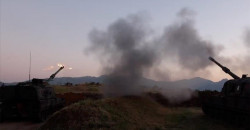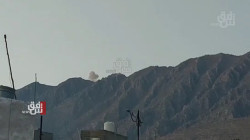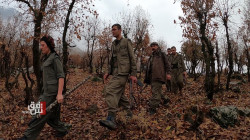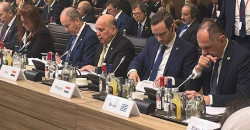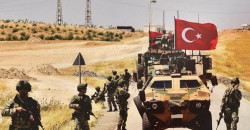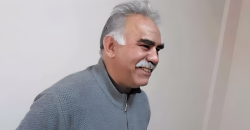PKK calls it quits: Peace on the horizon in Turkiye?
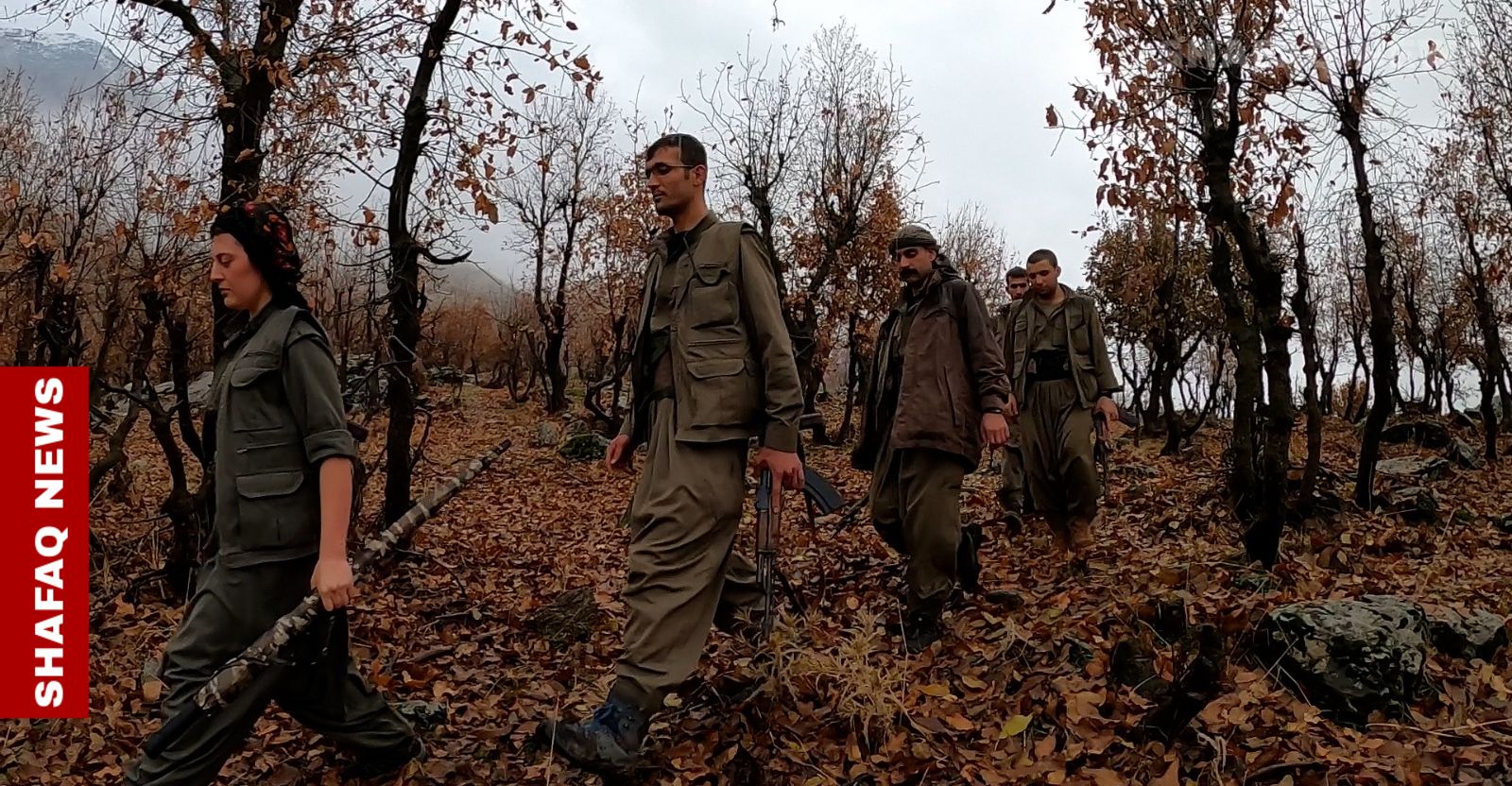
Shafaq News/ In a dramatic shift ending decades of armed conflict, the Kurdistan Workers’ Party (PKK) announced its dissolution and a formal end to its armed struggle against Turkiye, responding to a direct appeal from its jailed founder Abdullah Ocalan.
From its remote mountain base in Iraq’s Kurdistan Region, the group released a statement following a secretive internal congress, declaring that "the era of armed struggle has been exhausted" and signaling a readiness to pursue a democratic solution to the Kurdish issue through peaceful means.
The decision, described by analysts as a "watershed moment," brings an end to a conflict that has lasted more than 40 years and leaves open new questions about the future of the Kurdish cause in Turkiye and the broader region.
Roots of the Conflict
Launched in 1978 by Ocalan, the PKK emerged in southeastern Turkiye with Marxist-Leninist roots and an ambition to carve out an independent Kurdish state. By 1984, the PKK had turned to armed struggle, confronting Ankara in a campaign that would evolve over decades. Although the group later shifted its demands toward cultural rights and political autonomy, the path was already set for one of the region’s most enduring and destructive conflicts.
The 1990s brought the war to a boiling point. Turkiye ramped up military operations in the southeast, pushing deep into rural Kurdish areas where PKK fighters were embedded. The human toll was staggering. More than 4,000 villages were razed, and over 1.5 million Kurds were displaced, according to Human Rights Watch. Many were driven to impoverished outskirts of major cities such as Diyarbakir and Van, while others fled across borders into Iraq and Syria.
In 1999, the conflict took a dramatic turn. Ocalan was captured in Nairobi during a covert multinational operation involving Turkish intelligence. He was swiftly flown to Turkiye, convicted, and sentenced to death. That sentence was later commuted to life in prison when Turkiye abolished capital punishment in 2002. Since then, Ocalan has remained in solitary confinement on Imrali Island in the Sea of Marmara, largely cut off from the outside world.
His arrest ushered in a pause in fighting. PKK forces retreated from Turkish soil, and diplomatic channels began to open. One of the earliest efforts—the Oslo Process (2009–2011)—was kept secret, but by late 2012, a public peace initiative gained traction. In 2013, Ocalan called for a unilateral ceasefire and instructed his fighters to withdraw, a move hailed as a breakthrough. For a moment, peace seemed possible.
But that fragile calm collapsed in July 2015, when a deadly bombing in the town of Suruç—blamed on ISIS—killed 33 Kurdish activists. The incident reignited hostilities. Violence spread swiftly across the southeast. Urban centers like Cizre, Nusaybin, and Diyarbakir’s Sur district became battlegrounds. Turkish forces imposed curfews and launched large-scale operations, claiming they were targeting militants embedded in civilian areas.
The consequences were devastating. According to the International Crisis Group, more than 4,500 people were killed between 2015 and 2024, including over 500 civilians. In Sur alone, 70% of the historic district was destroyed, displacing tens of thousands. What had once been a cautious dialogue gave way to gunfire, rubble, and ruined trust.
As PKK fighters retreated deeper into the Qandil Mountains of northern Iraq and expanded into northern Syria, Turkiye took the fight across its borders. Precision airstrikes and drone operations became routine. By 2023, Turkiye claimed to have "neutralized (killed or captured)" over 1,800 PKK fighters in cross-border operations, though independent verification remains limited. The military campaign extended into areas controlled by the Syrian Democratic Forces (SDF), further complicating regional dynamics.
Back home, the conflict gave rise to a sweeping political crackdown. Already designated a terrorist organization by Turkiye, the United States, and the European Union, the PKK became the legal pretext for dismantling Kurdish political representation.
The Peoples’ Democratic Party (HDP)—once hailed as a democratic outlet for Kurdish aspirations—faced relentless suppression. Dozens of elected HDP mayors were removed from office and replaced by government trustees. Thousands of party members, including parliamentarians, were imprisoned under charges of terrorism.
The broader campaign extended beyond elected officials. Since 2015, over 10,000 Kurdish journalists, politicians, and civil society figures have been detained on alleged links to the Kurdistan Communities Union (KCK), the PKK’s political umbrella. Kurdish-language institutions were shuttered, and cultural initiatives systematically dismantled. Within a few years, public space for Kurdish expression narrowed dramatically.
Regional Entanglements
The longstanding conflict between the PKK and Turkiye has never been just a bilateral struggle. From its earliest days, it has drawn in powerful regional and international players, each shaping, fueling, or restraining the conflict in pursuit of their own strategic interests.
During the 1980s and 1990s, Syria became a critical partner for the PKK. Damascus granted PKK leader refuge and allowed the group to operate freely in Lebanon’s Bekaa Valley, which was then under Syrian control. This tacit support provoked mounting tension with Ankara, bringing the two countries dangerously close to war in 1998. Facing military pressure, the Syrian regime expelled Ocalan, leading to his eventual capture in a coordinated international operation.
Iran’s role has been more nuanced. While it has engaged in military clashes with the PKK’s Iranian offshoot—the Party for a Free Life in Kurdistan (PJAK)—Tehran has also used the Kurdish question as a pressure card in its often-complicated relationship with Ankara. This dual strategy reflects Iran’s regional pragmatism: opposing PKK-aligned insurgents domestically while leveraging their existence to gain diplomatic ground.
Iraq, meanwhile, has served as a key battleground in the conflict. Since the 1980s, successive Iraqi governments have permitted or acquiesced to Turkish military operations in the country’s north, particularly in the rugged borderlands where PKK fighters have long maintained strongholds. Although Baghdad regularly condemned these incursions as breaches of sovereignty, its limited control over the region left it with few options beyond passive acceptance.
That stance has shifted in recent years. In a significant move, the Iraqi government formally designated the PKK a banned organization in 2023, marking the first time Baghdad had taken such a position. The announcement followed growing security coordination with Turkiye, part of an evolving effort to curtail PKK activity and challenge Ankara’s justification for maintaining a military footprint in northern Iraq, including at its Zlikan base in Nineveh province.
Security analyst Sarmad al-Bayati highlighted the strategic weight of this decision in remarks to Shafaq News, stressing that Turkiye’s rationale for military presence would weaken considerably if Iraq translates the designation into effective policy. “If this decision is translated into concrete action, Turkiye will lose its justification for remaining inside Iraqi territory,” he explained. “That would pave the way for displaced villagers to return to areas abandoned for years.”
While regional actors have driven much of the conflict’s direction, global powers have also left their mark. Western governments, particularly the United States and European Union, have maintained a cautious and often contradictory posture. Although both officially classify the PKK as a terrorist group, Washington’s reliance on Kurdish-led forces—especially the SDF, whose backbone is the People's Defense Units (YPG)—has complicated relations with Turkiye. Ankara views the YPG as an extension of the PKK, turning Syria into a battleground not only against ISIS, but also against PKK-linked militancy.
A Major Turning Point
Despite these tensions, recent years have seen guarded optimism emerge in Western circles. In October 2024, Devlet Bahçeli—a key nationalist ally of President Recep Tayyip Erdoğan—proposed that Ocalan could be released if he renounced the armed struggle. The proposal received cautious praise from both the US and EU, who viewed it as a potential step toward long-term de-escalation.
At the same time, the regional context surrounding the PKK has undergone a dramatic transformation. The collapse of Bashar al-Assad’s regime at the end of 2024 removed a longstanding ally of PKK-linked groups. Meanwhile, Iran’s waning influence, exacerbated by domestic unrest and regional setbacks, further isolated the movement. With a new Syrian government aligning itself more closely with Ankara, Turkiye demanded the dismantling of YPG structures and the expulsion of their leadership, warning that military action would follow if its demands were ignored.
These shifts left the PKK increasingly exposed and forced its leadership to reassess the sustainability of armed resistance. Without reliable regional backers, the group’s decades-old strategy appeared less viable.
In Iraq’s Kurdistan Region, that reassessment culminated in a historic announcement. Between May 5 and 7, 2025, the PKK convened its twelfth congress in a remote mountainous area. The outcome was momentous: in a statement published by affiliated media outlets, including Firat News Agency, the PKK declared that it had “fulfilled its historic mission” and would dissolve its organizational structure while halting all armed activity.
The decision followed months of internal deliberation and a rare message from Ocalan himself. Speaking from his prison cell on İmralı Island, he urged PKK members to embrace political avenues, stating that “times have changed, and the struggle must now move to the political arena.” His appeal, though initially divisive, eventually helped sway the leadership toward ending the armed campaign.
Kurdistan Democratic Party (KDP) MP Muhma Khalil hailed the move as a pivotal moment. “This is a historic step that will contribute to regional stability and revitalize political dialogue,” he commented. “The armed struggle has lost its political effectiveness. Ocalan and the party’s leadership appear to believe the time is right to pursue a different path.”
Veteran Kurdish politician Abdulsalam Barwari echoed those views in a statement with Shafaq News, noting that the declaration emerged from a growing internal consensus. “Hope in Kurdistan now hinges on turning this decision into reality—by ending Turkish military presence and allowing villagers in border regions to reclaim their homes,” he explained.
Ankara’s response was measured. Foreign Minister Hakan Fidan called the move a “development worthy of close monitoring,” signaling that while Turkiye welcomed the announcement, it remained wary of potential splinter groups continuing militancy under new banners.
For Turkish analyst İslam Özkan, the moment holds rare promise. “This is a rare opportunity to end ethnic conflict within Turkiye,” he remarked in an interview with Shafaq News. “If counterinsurgency resources are redirected toward development and public welfare, Turkiye could experience a true turning point—provided the government remains committed to political reform.”
Echoes of Conflict
In the Kurdistan Region, the announcement was met with broad approval.
The Region had long served as a key rear base for the conflict, where most of the clashes between the Turkish military and PKK fighters took place across the northern border, resulting in heavy human and material losses.
KDP leader Masoud Barzani expressed his full backing for the peace process unfolding in Turkiye. He praised the positive steps all parties took, particularly following the PKK’s recent conference, conveying optimism that these efforts would lead to beneficial outcomes for the entire region. “This is a step toward lasting peace,” Barzani remarked, underscoring the moment's importance.
Echoing this sentiment, Nechirvan Barzani, President of the Kurdistan Region, welcomed the PKK’s decision, describing it as “a decisive step that opens a new chapter for the region.” Barzani emphasized that the move not only signified “political maturity” but also provided an invaluable opportunity for dialogue that could pave the way for stability, not only in Turkiye but across the wider region.
For the Regional leaders, this announcement is also seen as a critical moment that could lead to the formation of a durable peace. Bafel Talabani, leader of the Patriotic Union of Kurdistan (PUK), also hailed the PKK’s move, calling it “a historic and pivotal step.” Talabani stressed that the Kurdish question must be resolved “through peaceful means,” a sentiment that resonates with leaders across the region who have long sought a resolution to the conflict.
As the PKK pivots toward ending its armed struggle, analysts suggest that the decision could mark a shift in Kurdish politics within Turkiye. Mohammed Amin Penjweni, an expert on Kurdish affairs, told our agency that the PKK’s move could lead to the formation of a new political entity, one that rises from the remnants of the armed group.
“We may be witnessing the birth of a new political party,” Penjweni explained, noting that the PKK might change its name, install fresh leadership, and continue its struggle through democratic means.
What is Next?
Despite a wave of optimism, many observers remain aware that the road to peace is lined with uncertainty. A major concern is the risk of internal fractures within the PKK, or the emergence of more radical factions unwilling to abandon armed struggle.
This apprehension is not limited to Ankara or its Western allies. Within the Kurdish community in Turkiye, the announcement has stirred a complex mix of hope and unease.
In Diyarbakir, the largest Kurdish-majority city in southeastern Turkiye, reactions reflect this delicate balance. While some residents welcomed the chance to leave behind decades of conflict, others remain wary—recalling how a similar peace process unraveled in 2015, plunging the region back into violence.
Attention now turns to the future of thousands of fighters stationed in mountainous hideouts, whose demobilization raises sensitive and unresolved questions. Will they be integrated into civilian or political life? Are there guarantees from international actors to support such a transition? And what becomes of the remote villages and towns that have long been affected by military operations and armed presence? These issues continue to stir debate, with no clear answers yet.
Analysts following the development closely point out that much will depend on Ankara’s next steps. A meaningful response—through political reforms such as easing restrictions on pro-Kurdish parties or releasing political prisoners—could set the stage for a more inclusive era. However, if the government treats the disarmament move as a temporary or tactical gesture, the structural causes of the conflict may remain unresolved, potentially reigniting tensions in the future.
Shafaq News reports that the decision, while symbolically powerful, does not represent the end of the conflict. Instead, it marks the beginning of a long and delicate political journey. That process will require not only internal consensus, but also regional and international backing, as well as a willingness to accommodate competing interests and recognize the country's pluralism.
As both sides navigate this critical moment, hopes for peace now rest on mutual resolve—and the ability to rise above a painful history in pursuit of a comprehensive political solution.
